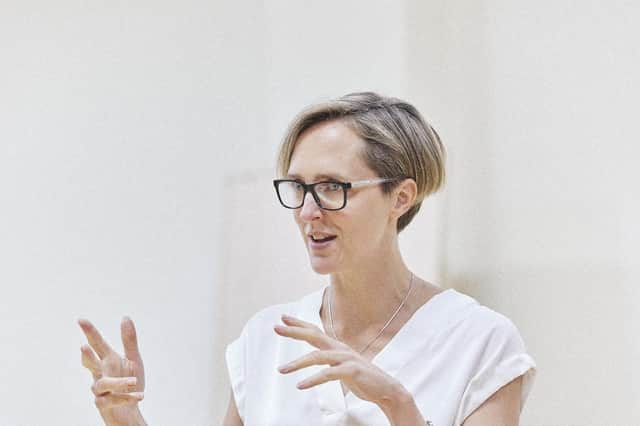Enid Blyton in Chichester - "a magical world of childhood where the summer goes on forever"


With music and lyrics by Theo Jamieson and book by Elinor Cook, the show plays Chichester Festival Theatre from October 21-November 12 after a spell at Theatr Clwyd where Tamara has been artistic director since August 2015. She developed the show with CFT artistic director Daniel Evans, who will join Tamara next year when they become co-artistic directors of the Royal Shakespeare Company.
Tamara said: “I was working with a commercial partner who approached me maybe nine or ten years ago and asked if I would be interested in developing a musical based on the Famous Five and it went through various development stages and then he left the production company and by then I had got Clwyd. I went to Hachette (publishers) and asked if they would be willing for Clwyd to take the rights. I had spoken to Daniel a couple of times because I thought that he would be a great creative friend on the project and because I thought that this could be a great fit for Chichester as well as the fact that he's so good at developing new musicals.
Advertisement
Hide AdAdvertisement
Hide Ad“Enid Blyton is still hugely popular, but Hachette have worked very hard to make sure that the books are still responsive today. They have a continual process of editing and revising to make sure that the books espouse values appropriate for now and reflect our own values today.”
We can all think of aspects of the work of Enid Blyton which have had to be dropped for our times: “But there was not a lot that had to change with The Famous Five. The Famous Five is interesting in that it has a lot about it that feels very prescient. Uncle Quentin is not identified exactly as a climate scientist but we do know that he’s working on alternative energies and you've also got the character George who feels a very contemporary young person in that she refuses to be identified by her gender, she's not interested in being defined by girly things and doesn't want to be called Georgina. She wants to be called George. She doesn't want to do all the things traditionally associated with being a girl. George is a 12-year-old and wants to climb trees and go on adventures. That might mean that she goes on to become non-binary or perhaps even transition but it might equally mean that she goes on to be a kick-ass lawyer or a famous mountaineer. I think it's really important in this production that we leave that conversation open but it certainly makes the story feel very contemporary in some ways.”
Which is perhaps part of the timelessness of it all: “Even when Enid Blyton was writing the books she was setting them at a time that didn't really exist. If you could have talked to my nan about the 1950s she would have said that they were grey and cold and miserable and there was never enough food on the table. But when you're reading Enid Blyton she is writing about a magical world of childhood where the summer goes on forever and where the kitchen table is always groaning with food, a world that was a real gift to us with this production.”